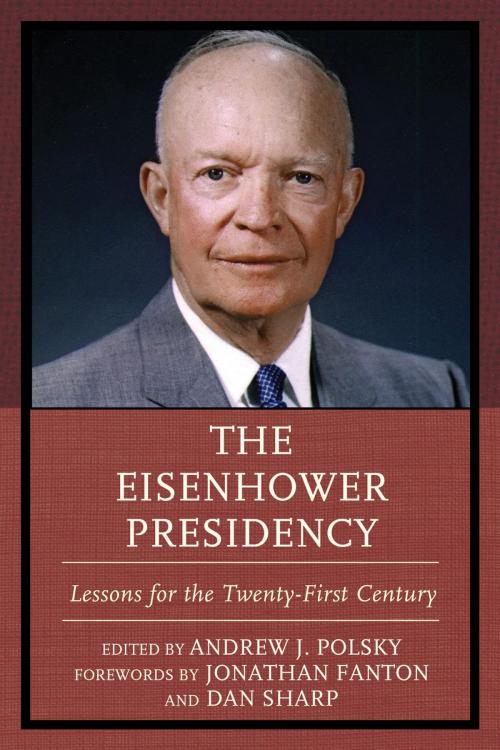The Eisenhower Presidency
Lessons for the Twenty-First Century
Nonfiction, History, Americas, United States, 20th Century, Social & Cultural Studies, Political Science, Government| Author: | Meena Bose, Dale R. Herspring, Douglas Little, Andrew J. Polsky, Kenneth E. Collier, Geoffrey Kabaservice, Adam McMahon, David A. Nichols, Mark Shanahan, Zuoyue Wang, M. Stephen Weatherford | ISBN: | 9781498522212 |
| Publisher: | Lexington Books | Publication: | November 30, 2015 |
| Imprint: | Lexington Books | Language: | English |
| Author: | Meena Bose, Dale R. Herspring, Douglas Little, Andrew J. Polsky, Kenneth E. Collier, Geoffrey Kabaservice, Adam McMahon, David A. Nichols, Mark Shanahan, Zuoyue Wang, M. Stephen Weatherford |
| ISBN: | 9781498522212 |
| Publisher: | Lexington Books |
| Publication: | November 30, 2015 |
| Imprint: | Lexington Books |
| Language: | English |
The chapters in this volume address the lessons we might draw from the Eisenhower experience for presidential leadership today. Although most of the authors find much to admire in the Eisenhower record, they express varying opinions on how applicable his approach would be for our own time. On one side, they appreciate his limited faith in the power of his words to move public opinion and his reluctance to turn to the use of force to solve international problems. On the other side, it was plain that Ike’s exercise of “hidden-hand” leadership (in Fred Greenstein’s evocative term) would not be possible in the modern media environment that makes Washington a giant fishbowl and instant revelation an acceptable norm. Both Eisenhower admirers and skeptics (and many of the authors are both) will find much in these essays to reinforce their preconceptions – and much that is unsettling. Eisenhower emerges as an effective but flawed leader. He was in many ways the right man for his time, but limited because he was also a man of his time.
The chapters in this volume address the lessons we might draw from the Eisenhower experience for presidential leadership today. Although most of the authors find much to admire in the Eisenhower record, they express varying opinions on how applicable his approach would be for our own time. On one side, they appreciate his limited faith in the power of his words to move public opinion and his reluctance to turn to the use of force to solve international problems. On the other side, it was plain that Ike’s exercise of “hidden-hand” leadership (in Fred Greenstein’s evocative term) would not be possible in the modern media environment that makes Washington a giant fishbowl and instant revelation an acceptable norm. Both Eisenhower admirers and skeptics (and many of the authors are both) will find much in these essays to reinforce their preconceptions – and much that is unsettling. Eisenhower emerges as an effective but flawed leader. He was in many ways the right man for his time, but limited because he was also a man of his time.















